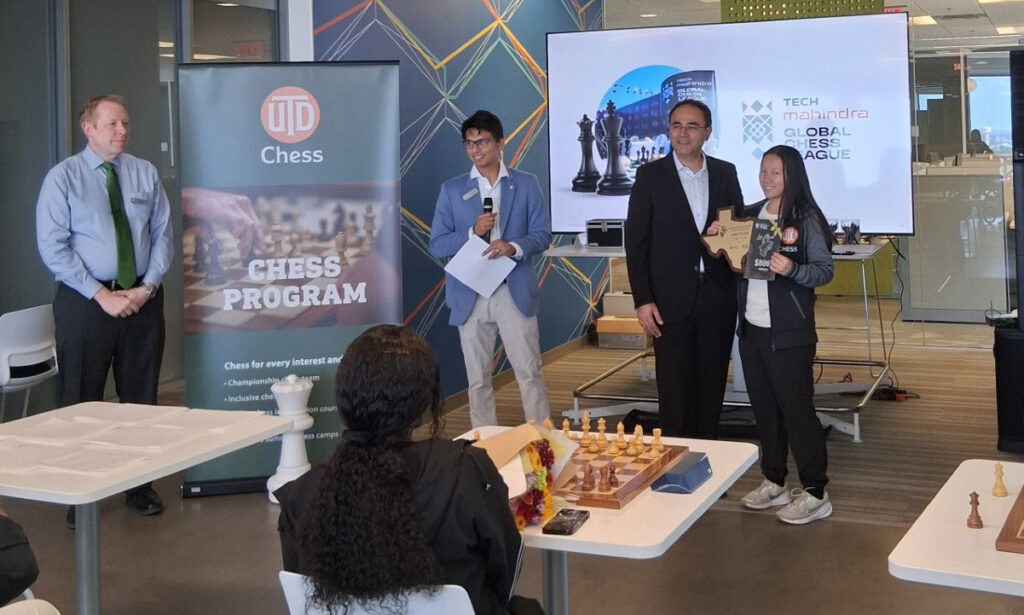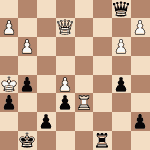Driving to the second day of the Texas State Women’s Championship, I was in a car accident. I was fine; my car was damaged. I let the organizer know that I would be late. The director paused my clock, and my opponent patiently waited for me. I won that game, but lost my second game, which was the last round. In this article, I discuss the championship, car accidents, and chess.
Opening Ceremony and Sponsor
I missed the first day of the Texas State Women’s Championship because I attended Checkmate: USA vs India. The chess program director for The University of Texas at Dallas (UTD), GM Julio Sadorra, summarized some of his remarks from the opening ceremony: “Our vision is to elevate women’s chess in Texas, and to open more doors for players of all ages and backgrounds. We hope that this championship will be just the beginning of many more opportunities for our women players.” Sadorra also mentioned the support of the Texas Chess Association.
Players enjoyed a spectacular view from the 12th floor of an office building in Plano, Texas, home to the championship’s sponsor, Tech Mahindra Global Chess League. Refreshments and a lounge made the time between rounds pleasant for socializing.
Errors
Although I enjoyed playing chess and socializing with players and their supporters (partners, coaches, parents), I was also distracted. When I should have been analyzing variations, I replayed my car accident in my mind. I also thought about the tasks I needed to accomplish, such as contacting my insurance company and a repair shop.
Distraction is also a common component of “driver error.” Driver error is the critical reason behind 94% of car accidents. According to research, “The critical reason is the immediate reason for the critical pre-crash event and is often the last failure in the causal chain of events leading up to the crash.” The same article stated that “recognition error, which included driver’s inattention, internal and external distractions, and inadequate surveillance” is the most frequently assigned reason within the driver error category. It would be interesting to research whether the components of driver error are like those of chess player error.
Think Chess, not Cars
Perhaps one factor that distinguishes grandmasters from less-accomplished players is their ability to focus on chess, without distracting thoughts. Bill Wall compiled a webpage about “Cars and Chess.” One story was about GM Herman Pilnik, who was in a car accident on his way to the Pan-American Chess Congress, held in 1945 in Hollywood, California. After getting out of the hospital, he showed up for round 5. His head was “heavily bandaged,” according to a website about the 13-round event.
Pilnik’s games with his assigned opponents for rounds 1–4 had been postponed and were completed during the tournament’s second half. He finished third, behind GMs Samuel Reshevsky and Reuben Fine. Here is one of his wins.
UTD Student Takes First

Many of the women who played in this year’s Texas State Women’s Championship are associated with UTD, Texas Tech University, or The University of Texas Rio Grande Valley (UTRGV). The winner, WGM Maili-Jade Ouellet, attended UTRGV as an undergraduate and is now a graduate student at UTD. In the final round, she defeated WIM Rachael Li.
Here is UTD’s press release about the Texas State Women’s Championship.
